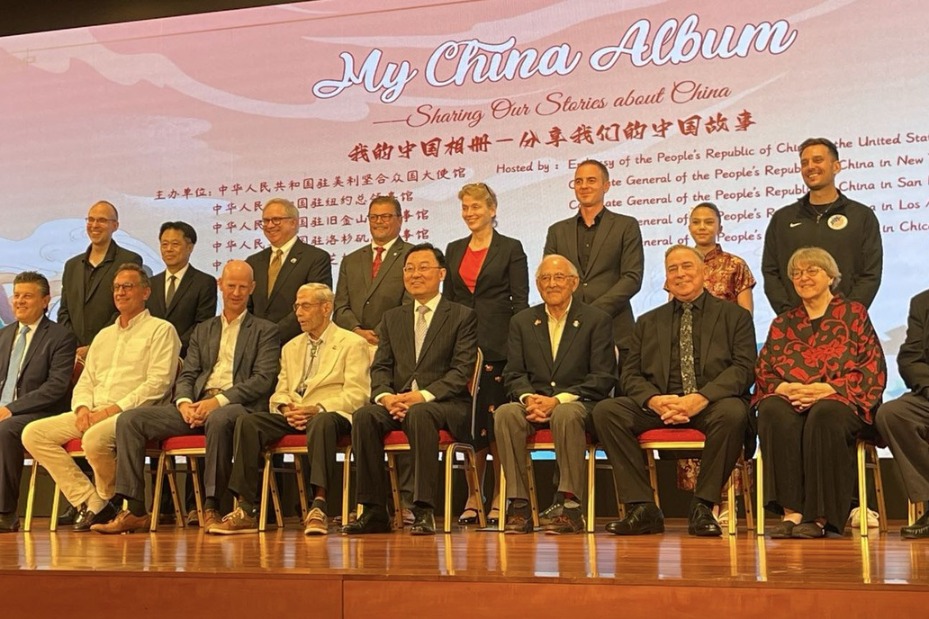Individuals key role in achieving common prosperity
By Tang Min | China Daily | Updated: 2021-11-15 09:36

As for redistribution, although the share of tax revenue in GDP is not small in China compared to other countries, direct taxes such as income taxes, real property taxes and taxes on assets account for a smaller fraction of tax revenue than indirect taxes. This is very different from other countries.
Compared with direct taxes, indirect taxes-which are usually imposed on manufacturers or suppliers who later pass the taxes on to end-users-play a less significant role in reducing income inequality because proportionally, the poor usually pay more indirect taxes. Therefore, China should reform its tax structure, strengthen its transfer payment mechanism and improve its social security system in particular. Additionally, the plan to roll out property taxes such as real estate and inheritance taxes will also help improve income distribution.
The tertiary distribution is the redistribution of income and wealth through voluntary donations. The volume of donations in China has been growing of late, but the scale is still fairly low. The amount reached 150.9 billion yuan ($23.6 billion) in 2019, and around 72 percent of the money flowed into three areas-education, poverty alleviation and healthcare.
Another feature of donations in China is that the majority of donors are enterprises and entrepreneurs, whereas personal donations take a larger share of total donations in other countries.
While the topic of common prosperity has been widely discussed recently, we should clarify a few misunderstandings.
First of all, common prosperity is not egalitarianism. China will not rob the rich to help the poor. The country should also avoid falling into the welfare trap and prevent people from holding the attitude of "waiting for, relying on and requesting" aid.
During the process of sharing a cake, we should also remember that to make it bigger, we must promote common prosperity amid high-quality development.
It is impossible for the incomes of different groups of people to grow at the same pace. For a fairly long period of time, the efforts to promote common prosperity should focus on the expansion of China's middle-income group, which the National Bureau of Statistics said has a population of over 400 million. The country is striving to enlarge its middle-income group to more than 800 million by 2035.
International experience show that it is sound to form an olive-shaped income distribution structure, as the society will become relatively stable and people will have a strong sense of happiness. Therefore, China should put more emphasis on further expanding the middle-income group when making policies.
We must be keenly aware that promoting common prosperity is an arduous and complicated long-term task, which cannot be accomplished overnight or pressed ahead at the same pace in different companies, communities or areas of the country.
Another misunderstanding is putting the hope of achieving common prosperity in the tertiary distribution.
As I said earlier, the volume of donations in China was only 150.9 billion yuan in 2019, or 0.15 percent of GDP that year. In the United States, the volume of donations accounted for 2.2 percent of GDP.
The tertiary distribution can only play a supplementary role, rather than a leading role, in improving the distribution of income in any country. It will play an even smaller part in China as the public has not yet formed a habit of making donations.
However, the tertiary distribution still has huge growth potential in China, where 62 percent of donations came from businesses while personal donations only contributed 16 percent of the total. That's why the country should also encourage individuals to participate more in charitable activities.
I want to stress that the tertiary distribution must abide by the principle of voluntary participation and that the government can take various measures, such as tax exemptions and granting naming rights, to encourage entrepreneurs and ordinary people to make donations.
Moreover, China should further expand the scope of participants in charitable activities. In order to enlarge the number of volunteers, the country needs to allow more nonprofit organizations to take part in public welfare undertakings and play a bigger role in the tertiary distribution.
The writer is a counselor of the State Council, China's Cabinet, and executive vice-chairman of the YouChange China Social Entrepreneur Foundation. The views are compiled from his online lecture to the Tsinghua University PBC School of Finance.
The views don't necessarily reflect those of China Daily.
























